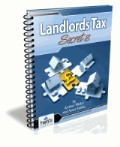Ooops I’ve destroyed my paperwork and receipts
Question
If a person has destroyed paperwork's, in terms of book keeping records and invoices believing they would no longer be required, but has retained bank statements, and can produce end year accounts calculations.
What are the implications of this during a tax enquiry? Ian Says There are no hard and fast rules where enquiries are concerned. The Inspector could decide to go for a penalty for not keeping proper records, which could be up to £3,000 per year involved. However, I have never seen this happen as the penalty must be decided by the Commissioners of the Inland Revenue. Ignorance of the rules regarding the keeping of records is no excuse. The Revenue are entitled to ask for the records and in the absence of such records, the Inspector has the power to reach his own conclusions as to what expenses are claimable and how much. The taxpayer is under an obligation to retain such records. Having said that, if you can show accountants/tax advisers workings, together with bank statements, the Revenue may accept this as sufficient evidence and proceed with the enquiry using these records. Typically in a case such as this the Inspector will use his ‘best judgement’ and only seek to disallow those items he feels are incorrect. He will also ask to see records relating to a later or earlier period to work through these and determine the average cost of expenses incurred, and base his findings on these. It is likely that a case such as this would result in a settlement, with the taxpayer being required to make an additional payment of tax, interest and a penalty based on the Inspector’s findings. Professional help should always be sought immediately if an enquiry is launched to minimise the additional amount payable.
Case Study
|

To enrol in the 7 tax saving strategies email course complete the form below. The first module will be emailed to you immediately.

 UK Property Tax Q&A
UK Property Tax Q&A
